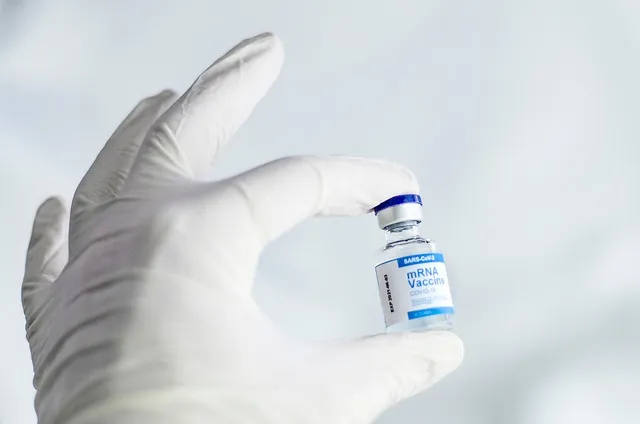HIPAA standards are crucial for protecting patient information in healthcare settings, ensuring the confidentiality, integrity, and accessibility of Protected Health Information (PHI). Call centers play a vital role in securing sensitive data through robust security protocols like encryption, secure communication, and staff training. By adhering to regulations and implementing advanced technologies, these centers build trust between providers and patients while facilitating effective patient care and satisfaction. Outsourcing to specialized healthcare call centers offers significant benefits, including efficient handling of patient inquiries and minimal data breach risks, ultimately enhancing overall security in medical practices.
In the digital age, securing patient data is paramount. Explore the vital role of call centers in facilitating secure communication within healthcare, adhering to stringent HIPAA standards. This comprehensive guide delves into the implementing security measures for safe information exchange, best practices for confidential conversations, and compliance benefits of outsourcing call center services specifically tailored for healthcare providers. Discover how expert call handling enhances patient privacy and streamlines healthcare operations.
- Understanding HIPAA Standards for Healthcare Data Protection
- The Role of Call Centers in Secure Communication
- Implementing Security Measures for Safe Patient Information Exchange
- Best Practices for Handling Confidential Healthcare Conversations
- Ensuring Compliance and Regulatory Adherence
- Benefits of Outsource Call Center Services for Healthcare Providers
Understanding HIPAA Standards for Healthcare Data Protection

HIPAA standards are crucial for ensuring secure call handling in healthcare environments. These regulations, set by the Health Insurance Portability and Accountability Act, establish rules to protect sensitive patient information, known as protected health information (PHI) or medical data privacy. Compliance with HIPAA support systems is essential to maintain the confidentiality, integrity, and availability of PHI during transmission, storage, and retrieval.
Call center services catering to healthcare providers must implement robust security measures to safeguard PHI from unauthorized access or disclosure. This includes encrypting data during transfer, using secure communication channels, and providing comprehensive employee training on HIPAA compliance. By adhering to these standards, call centers ensure the secure handling of sensitive information, fostering trust between healthcare providers and their patients.
The Role of Call Centers in Secure Communication

Call centers play a pivotal role in facilitating secure communication within the healthcare sector, ensuring that sensitive patient information is handled with utmost care and confidentiality. With the increasing reliance on digital platforms for medical services, call centers have become a crucial link between patients, healthcare providers, and insurance companies, all while maintaining strict adherence to privacy regulations like HIPAA (Health Insurance Portability and Accountability Act). These centers employ specialized agents who are trained in secure call handling healthcare, enabling them to navigate complex medical data privacy concerns with ease.
The patient confidentiality services offered by compliant call centers are designed to protect personal health information, ensuring that discussions remain strictly private. Their HIPAA support system incorporates robust security measures, encryption technologies, and access controls to safeguard medical records and prevent unauthorized access. This secure communication channel not only streamlines administrative tasks but also fosters effective collaboration between healthcare providers, ultimately enhancing patient care and satisfaction.
Implementing Security Measures for Safe Patient Information Exchange

Implementing robust security measures is paramount for call centers handling sensitive patient information and facilitating secure communication within healthcare networks. These measures are designed to protect Patient Protected Health Information (PHI) and ensure medical data privacy during every interaction. Call center services that cater to the healthcare industry employ advanced encryption technologies, secure data storage solutions, and strict access controls to safeguard PHI from unauthorized access or disclosure.
By integrating these security protocols, call centers create a robust framework for secure clinic communication, fostering trust among healthcare providers and patients alike. They adhere to strict standards set by regulations like HIPAA, ensuring that all interactions comply with protected health information (PHI) protection guidelines. This commitment to secure call handling fosters a culture of data privacy, enabling healthcare providers to focus on delivering quality patient care while maintaining the highest level of confidentiality.
Best Practices for Handling Confidential Healthcare Conversations

In the realm of healthcare, where sensitive patient information is paramount, best practices for handling confidential conversations are non-negotiable. Secure call handling in healthcare involves adhering to strict protocols designed to protect medical data privacy and ensure patient confidentiality services. This includes implementing robust security measures such as encryption for all data transmission, regular staff training on HIPAA compliance, and the use of specialized call center software that meets HIPAA standards.
Call centers providing healthcare support must establish a comprehensive HIPAA support system. This involves defining clear procedures for handling patient inquiries, scheduling appointments, and managing emergencies while maintaining complete discretion. By prioritizing secure call handling, these centers not only safeguard patient information but also foster trust between healthcare providers and their patients, ensuring that every interaction remains strictly confidential.
Ensuring Compliance and Regulatory Adherence

Ensuring compliance with HIPAA standards is non-negotiable for call center services handling sensitive healthcare data. This stringent legislation protects the privacy and security of Protected Health Information (PHI), emphasizing the need for robust measures to safeguard patient confidentiality. Call centers specializing in secure call handling for healthcare providers implement a comprehensive set of protocols and procedures to meet these demands, including encryption of all communications, rigorous staff training on data protection best practices, and strict access controls to limit PHI exposure.
Medical data privacy is paramount, and reputable call center services go beyond regulatory adherence to offer cutting-edge security solutions. They employ advanced technology, such as secure voice and data networks, to prevent unauthorized access and ensure patient confidentiality services that are reliable and consistent. This commitment to securing call handling not only complies with legal obligations but also builds trust between healthcare providers and their patients.
Benefits of Outsource Call Center Services for Healthcare Providers

Outsourcing call center services to specialized healthcare providers offers numerous advantages for medical practices looking to enhance their operations while ensuring patient information remains secure. By leveraging an external team, healthcare organizations can benefit from a robust HIPAA support system, allowing them to focus on delivering exceptional patient care. These call centers are equipped with trained professionals who understand the nuances of secure clinic communication and medical data privacy.
This approach enables efficient and effective handling of patient inquiries, appointments, and support requests while adhering to stringent HIPAA standards. With dedicated resources, healthcare providers can ensure that all interactions are conducted securely, minimizing risks associated with data breaches and maintaining the confidentiality of sensitive patient information.
